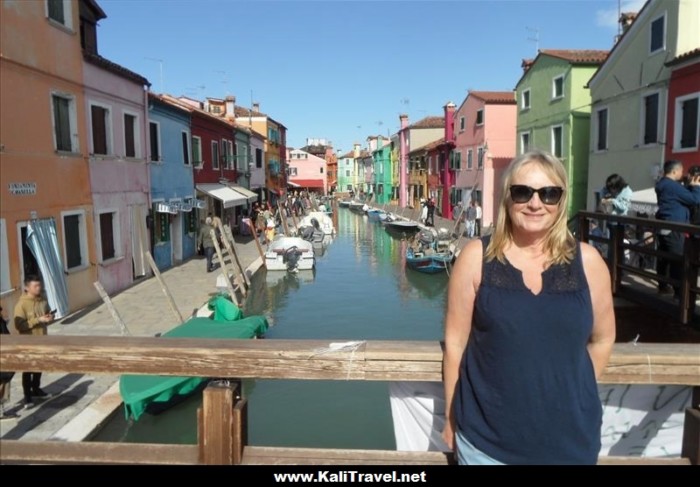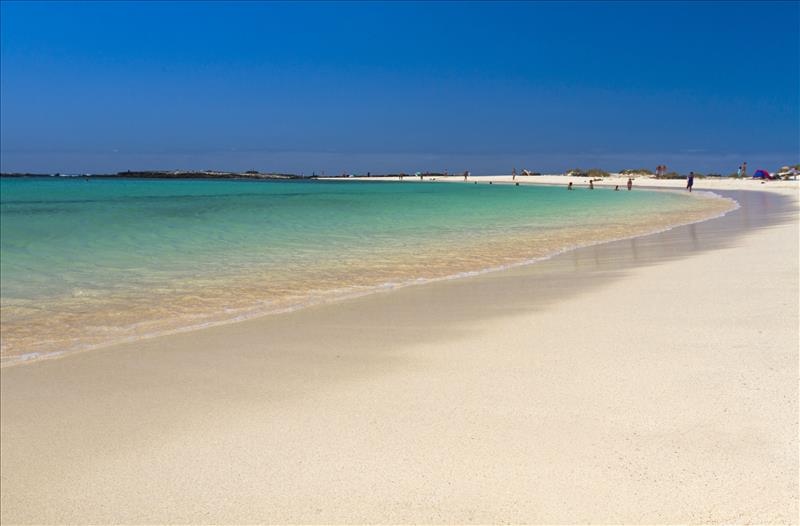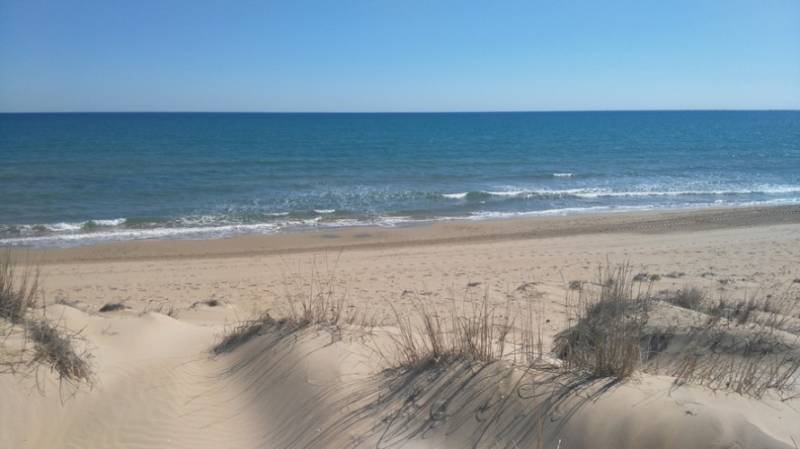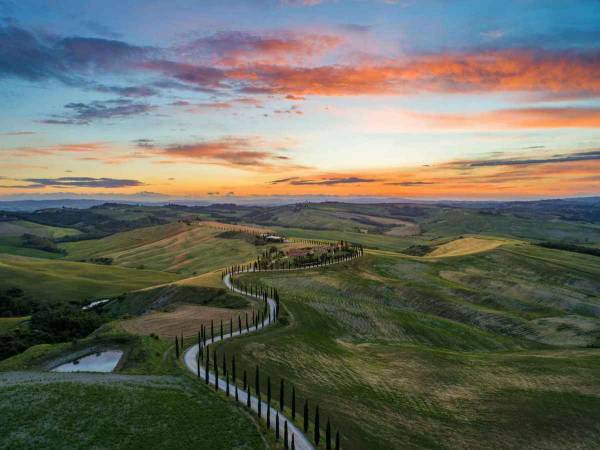Croatia is the perfect place to visit at anytime of year. The beauty of shimmering white beaches, pine-clad islets and aquamarine waters is offset by momentous walled cities oozing Medieval wonders and Roman remains.
The inland setting is exceptionally rich, eight national parks and a dozen nature reserves keep this part of the planet ecologically intact. Hilltop castles, riverside villages, waterfalls splashing into secreted lagoons… these are just some of the beautiful and romantic places to visit in Croatia on a road trip.
Trailing for more than a thousand miles along the languid coastline of the Adriatic Sea, Croatia is one of Europe’s dream destinations. Hundreds of islands are scattered offshore in this sheltered arm of the Mediterranean which the Balkan Peninsula shares with Italy. Travel in Croatia is pretty amazing, put it on your bucket-trip list!
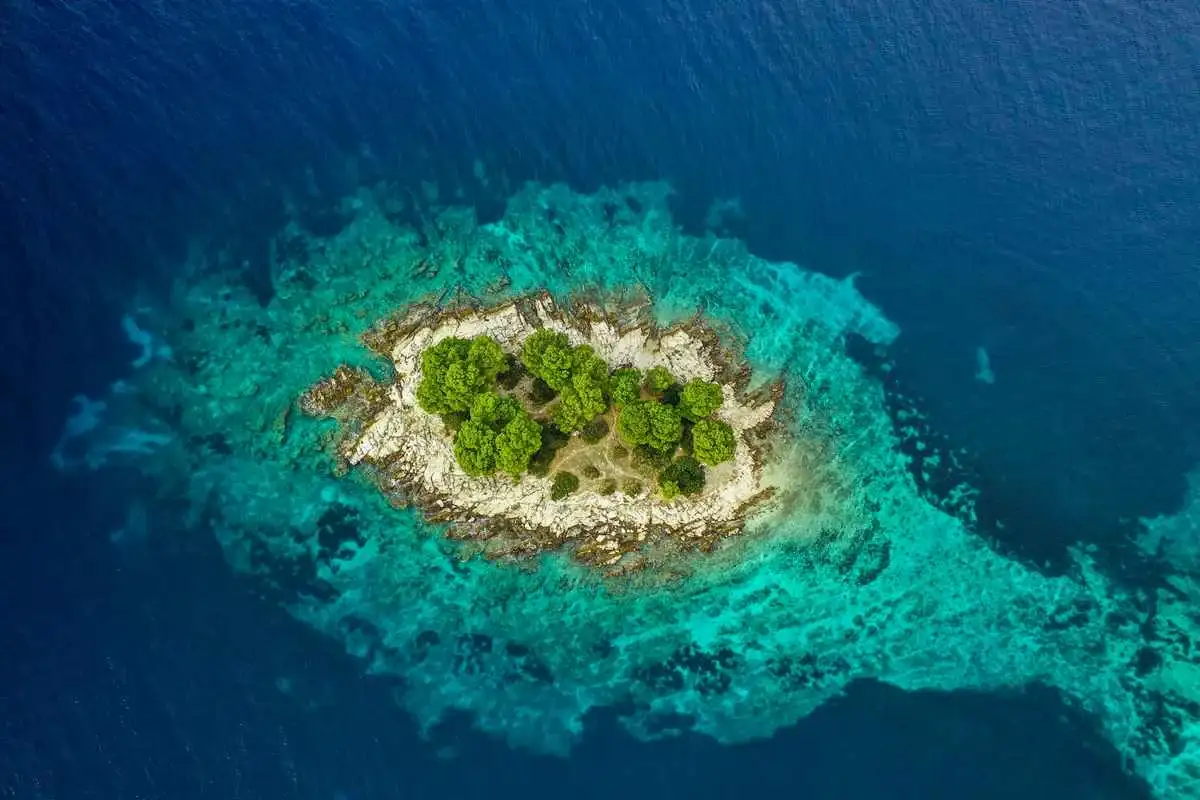
Beautiful and Romantic Places To Visit in Croatia
Croatia is without a doubt my favourite country to visit; the landscapes are stunning, the cities steeped in history, the sea is clear crystal blue and the weather absolutely gorgeous.
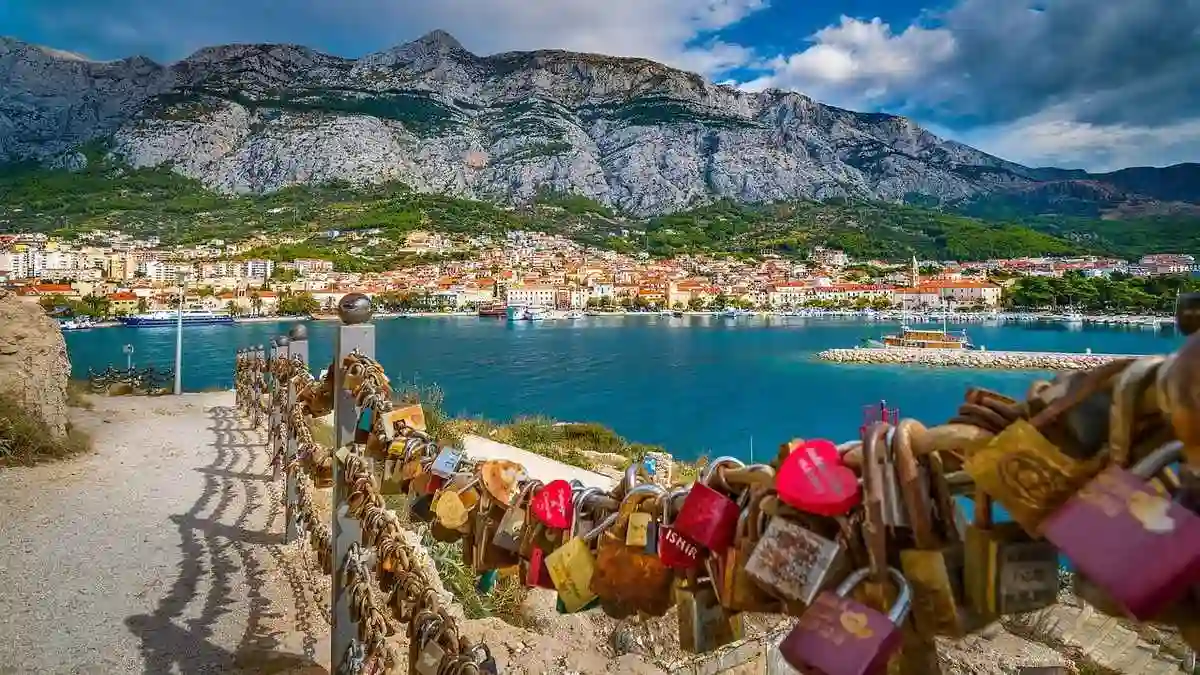
Authored by Sophie
I travelled around Croatia for a month after graduating and it’s also going to be the place we’ll get married in. How romantic is that!
We started our Croatia road trip in the capital city Zagreb then travelled to Rijeka, Rovinj, Pula, Split, Korčula and Dubrovnik. Each place is so unique and worth visiting. To keep costs down we rented homes from AirBnB most of the time and even stayed with a local host, Maria, in Dubrovnik where we got a really authentic experience, including shots and homemade honey.
If you’re looking for lovely places to see, Croatia is a must! Here I share my favourite places to visit in Croatia and personal highlights from the trip.
Did you know that Italy is only 3 hours away from Croatia by fast ferry? Catch the catamaran from Pula or Rovinj for a couple of days in Venice and visit the beautiful Lagoon Islands of Murano, Burano and Torcello while you’re there!
Romantic Places to Visit in Croatia
Zagreb
When you envision Croatia, you may think of its coastal beauty but Zagreb, the capital, is definitely worth a visit too. Surrounded by forests on the slopes of the Medvednica mountains, the historical riverside city is really picturesque. Like many places in Europe it dates to Roman times.

Zagreb Old Quarter is very atmospheric, full of medieval churches and palaces as well as art galleries and museums. Start by exploring the streets around Jelačić Square in Lower Zagreb and then take the short steep ride on the funicular to the Upper Town. The Funicular Railway is an experience in itself, although slightly rickety and old but that only adds to the fun!
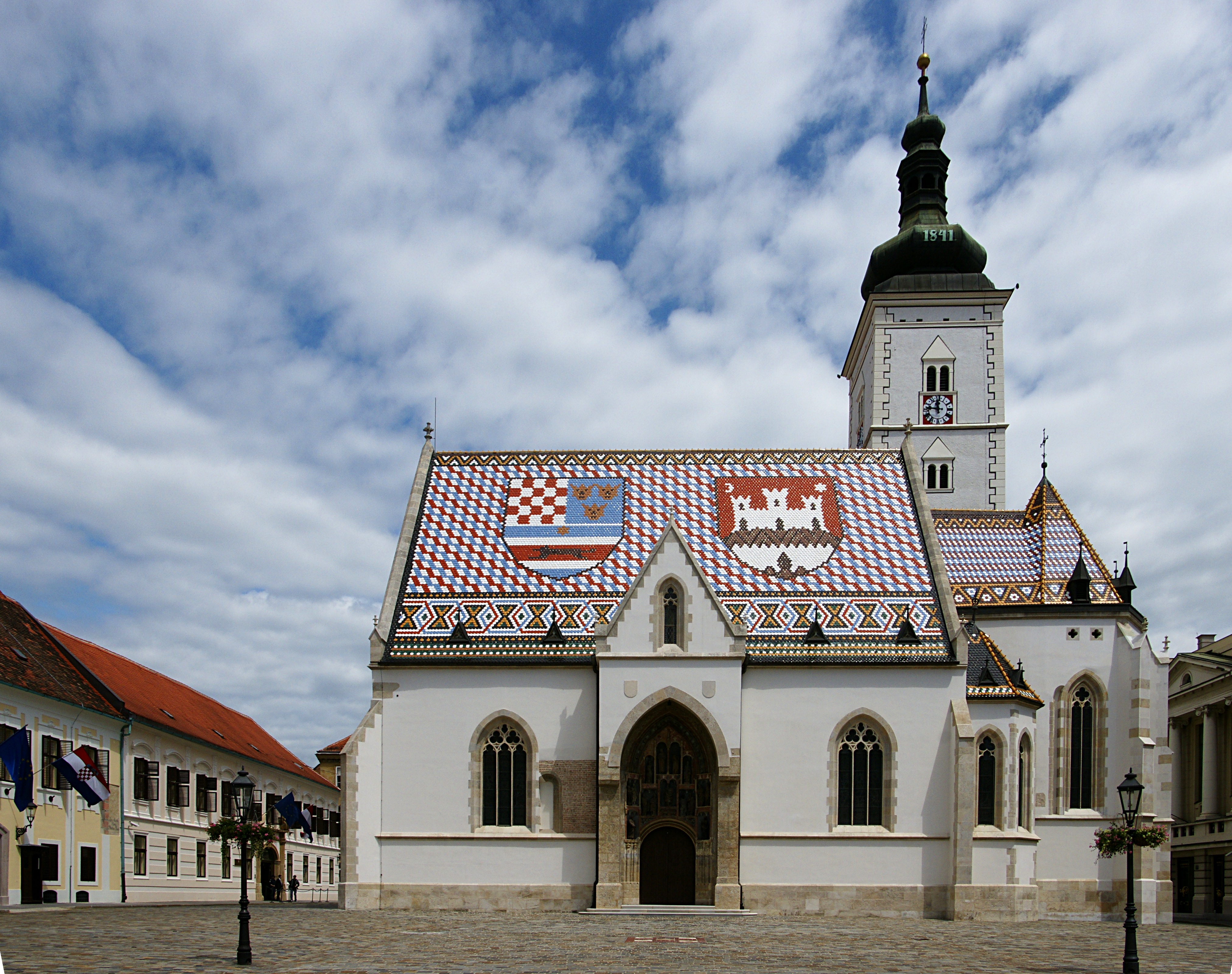
Highlights of ‘Upper Town–Medveščak’ include the towering spires of Zagreb Cathedral or St Mark’s Square (iconic church with Zagreb coat of arms engraved on the roof, and the Croatian Parliament building).
My absolute favourite place in Zagreb is the Museum of Broken Relationships, a museum visit like no other, eye-opening, funny and emotional. This is where ‘memories of broken hearts’ live – from losing parents to high school crushes, divorces and more. It’s made up of artifacts of broken relationships with everything from wedding dresses, notes on napkins and records, and each come with their own true story. Incredible place to visit. You exit the museum on a hilltop above Zagreb and just look out appreciating everything in life so much more.

Afterwards, enjoy a leisurely coffee at one of the cafés that line the cobbled streets. Locals and tourists alike treat their coffee breaks like rituals, where no-one is hurried by waiters, giving you the time to people-watch and relax.
Finally, if you’re looking for the best views of Zagreb, go up to see Medvedgrad Castle and the ruins of the fortified village which overlooks the city.
Rijeka
Charlie and I stopped by Rijeka for around 3 nights. On the shores of the northern Adriatic, it’s quite easy to get here from different parts of Croatia and strategically placed for tripping the islands. The majority of our time was spent planning the rest of our journey but of course some sight seeing was squeezed in too.
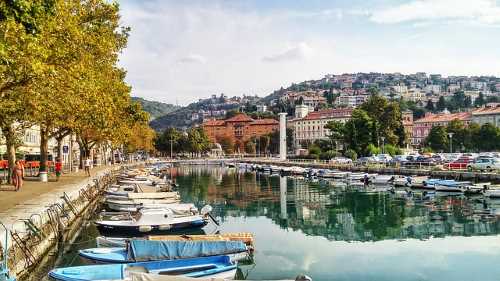
Rijeka is a traditional seaport that spreads out along the Rječina River and Kvarner Bay. Stroll along the waterfront past the luxury yachts then head into the old town to explore. Korzo, the main street is always lively.
Historic monuments include the Roman arch and the clock tower over the city gateway, ancient entrances to the inner city. St Vitus Cathedral, Casa Veneziana, the ‘leaning tower’, and Adria Palace in Adriatic Square are just some of the historical sites.

The Petar Kružić Stairway was originally built for pilgrims to make their way to the Our Lady of Trsat Church. There are a lot of steps on the climb up but it’s worth the effort to see Trsat Castle at the top (entrance is free!). This is the perfect place for taking photos with the cupolas and rooftops of Rijeka beside the river below you, and the islands out to sea.
After all those steps, treat yourself to a delicious seafood dinner by down the riverside.
Zadar
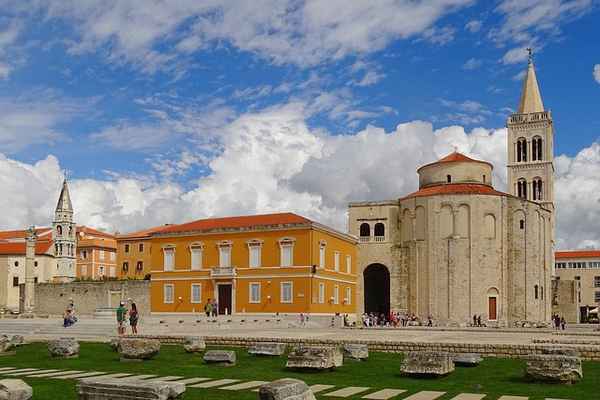
Zadar is a historic old town of Roman ruins and medieval churches so there are plenty of cultural sites to take in on your visit. St Donatus’ Church is an original 9th century circular rotunda temple which is definitely worth seeing. St Anastastia’s Basilica is another top site right in the centre of the city – this monumental cathedral is the largest in Dalmatia.
The churches have strict dress codes such as making sure your shoulders are covered, so it’s best to read up on this beforehand as they may not let you in.
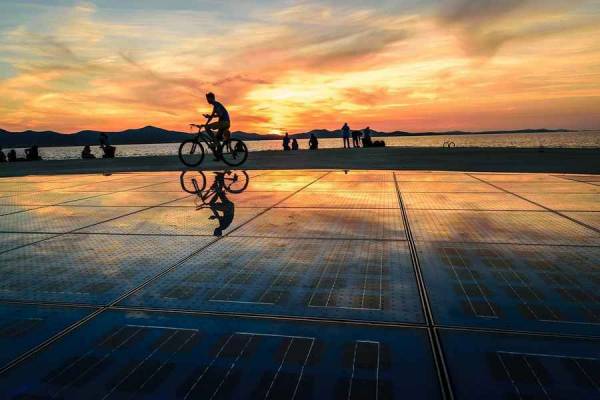
My highlight from Zadar is definitely the Sea Organ (Morske orgulje) on the seafront. It’s a musical pipe organ played by the sea. Holes cut into the top steps are connected to tubes hidden underneath the quay and music resonates upwards as the sea washes in.
It sounds a bit like whale song! Sitting on the marble steps at sunset as the sea organ plays is the definition of romantic, we kept going back to just sit and chill there.
The whole region around Zadar is tremendously scenic, so think about staying in the city for a few nights and taking day trips out. This part of the Dalmatian coast has some of the best beaches in Croatia, and inland there are 5 National Parks to visit, not to mention all the islands within easy reach!
Plitvice Lakes National Park

Plitvice Lakes National Park is easily accessible from Zadar, about a 2 hour bus or car journey. I struggle to explain how stunning this National Park is without using all the cliches, it really is Mother Nature in all her glory. Not surprisingly, it’s one of the top desinations for a walking tour in Croatia.
Envision winding paths and walkways over and around cascading aquamarine lakes (there are 16 in total), waterfalls of all dimensions, and trails through the surrounding forests. Sunlight reflecting through the trees gives the water that amazing aquamarine colour.
A protected World Heritage Site, swimming is not actually allowed in Plitvice Lakes. Fortunately, there’s a place a few miles up river in Korana village where you can take a dip in summertime, and even stay in a ranger’s house for the night.
Dubrovnik

Dubrovnik is Croatia’s most famous walled city , a popular destination on the southern Dalmatian coast. A walk around Dubrovnik’s massive walls, climbing the stone steps and sturdy towers, is a great way to spend an hour or two, if a little tiring! Inside the fortified Old Town is like stepping into a medieval world with steep narrow alleyways and the stone-paved Stradun (the main street which is lined with 17th century houses). There are dozens of focal points to see, including Dubrovnik Bell Tower, the Baroque Cathedral, Rector’s Palace museum and dungeons, archaic churches, monasteries and fortresses.
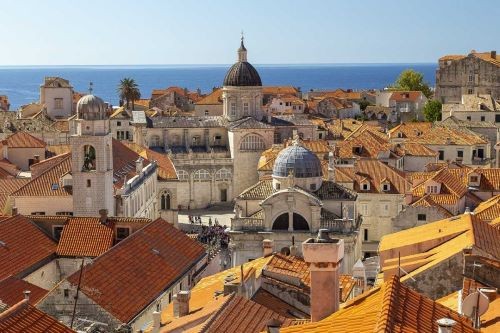
Croatia has quite a graphic history and the Croatian War of Independence was fairly recent (1991 – 1995). I highly recommend you visit The Museum of Croatian War of Independence which is devastating but really helps you understand the culture and history of Croatia.
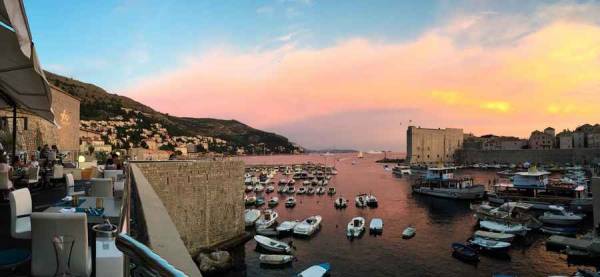
There are of course ‘secret places’ which are fun to find when wandering around and we stumbled upon Buza Bar by chance. A ‘hidden’ bar in the Old Town walls and nestled into the rocks, you don’t feel like you’re in the city looking out at the sea, watching people jump in from the rocks, and enjoying the afternoon sunshine with an Aperol Spritz. The local beaches are mainly rocky slabs or shingle, and the waters beautifully transparent for swimming or paddling out on a kayak.
The Adriatic is dotted with alluring islands, and many can be reached quickly by ferry from Dubrovnik harbour. Elaphiti Island is gorgeous day trip, for example. Or for an extended holiday, get the boat to Korčula where we stayed later on our travels through Croatia.
Split and Hvar
Split is the second largest city in Croatia and a UNESCO World Heritage Site in the Dalmatia Region. Although it may seem similar in some ways to Dubrovnik, it is completely different. Split centres around Diocletian’s Palace, a massive 4th century fortress complex which occupies half of the old town, with shops, bars and restaurants around it. We spent hours just walking up and down, getting lost in the streets and admiring the architecture and history.
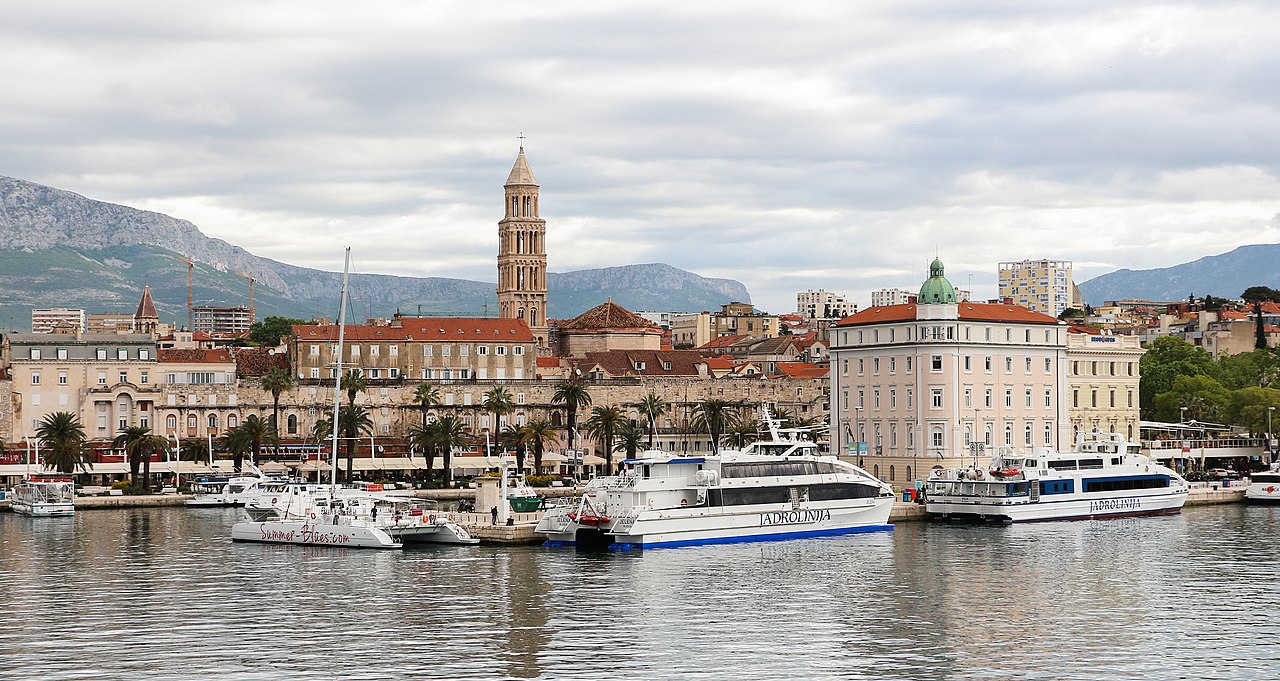
For the ultimate views, visit Cathedral of St Domnius and climb the Bell Tower steps. They are quite narrow and at one point as you get higher, there are small windows with no rail or anything – my legs did go at this! But once you get to the top, you get to see sweeping vistas across the city to the Split Channel and Gulf of Kaštela.
A day trip to Krka National Park, where you can cool off under the waterfalls, or an outing to the Adriatic Islands are easy to do from Split.
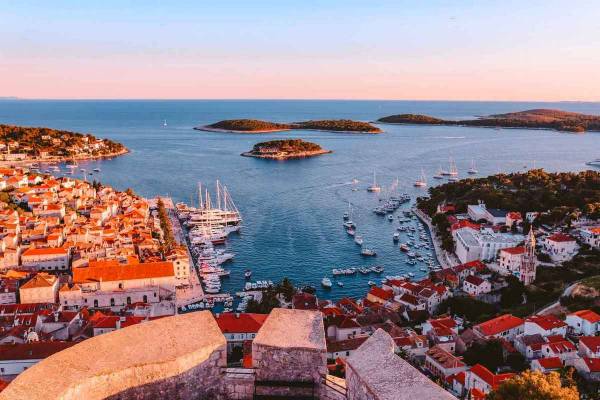
Hvar is a lovely island only an hour away by boat. The easiest and cheapest way is to get the ferry over from Split. Apart from being a popular party destination, there are some secluded beaches here too. A great idea is to hire a scooter for the day and find a quiet cove.
Spend the morning swimming and snorkeling, then motor along the coast road to Stari Grad ‘Old Town’ for the afternoon. It’s one of the oldest towns in the whole of Europe and definitely worth visiting! Finally, walk up to the ‘Spanish Fort’ for the most romantic views of the sun setting over the surrounding islands in the Adriatic sea. In fact, there are so many things to do on Hvar Island, it’s worth much more than a day trip.
Pula (Istria Peninsula)
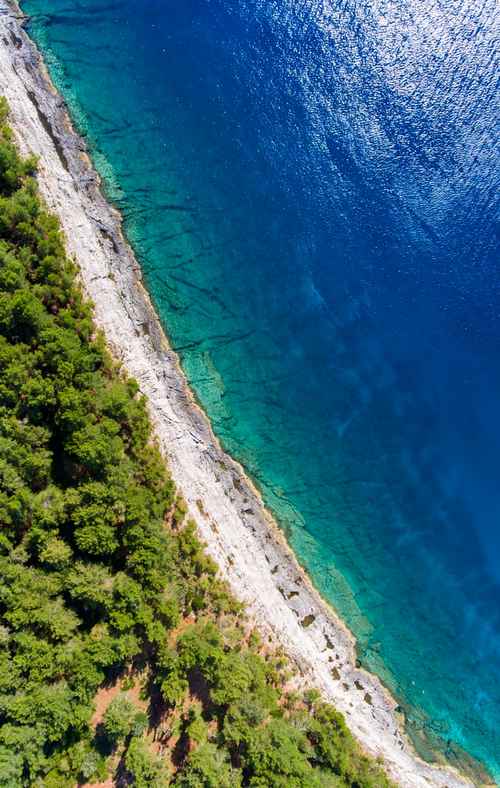
Pula is a smallish seaside town with ancient little streets in a lovely spot at the tip of Istria Peninsula. A favourite holiday destination that combines beach life with amazing cultural sights, there are lots of things to do in Pula. The first century Roman Amphitheatre being the most famous site, either take a guided tour to learn a little history, or walk around yourself. One of the best preserved amphitheatres in the world, this huge arena makes a grand venue for film festivals and concerts.
The Istria coast is really attractive, imagine those Instragram shots with white pebble beaches backed by pine trees against a cloudless sky, sunshine sparkles reflecting off the sea giving that unbelievably turquoise colour to the idyllic summer scene. The Brioni Islands are amazingly beautiful, a National Park where you can see dinosaur footprints, with world famous resorts where the famous stay.
Korčula Island
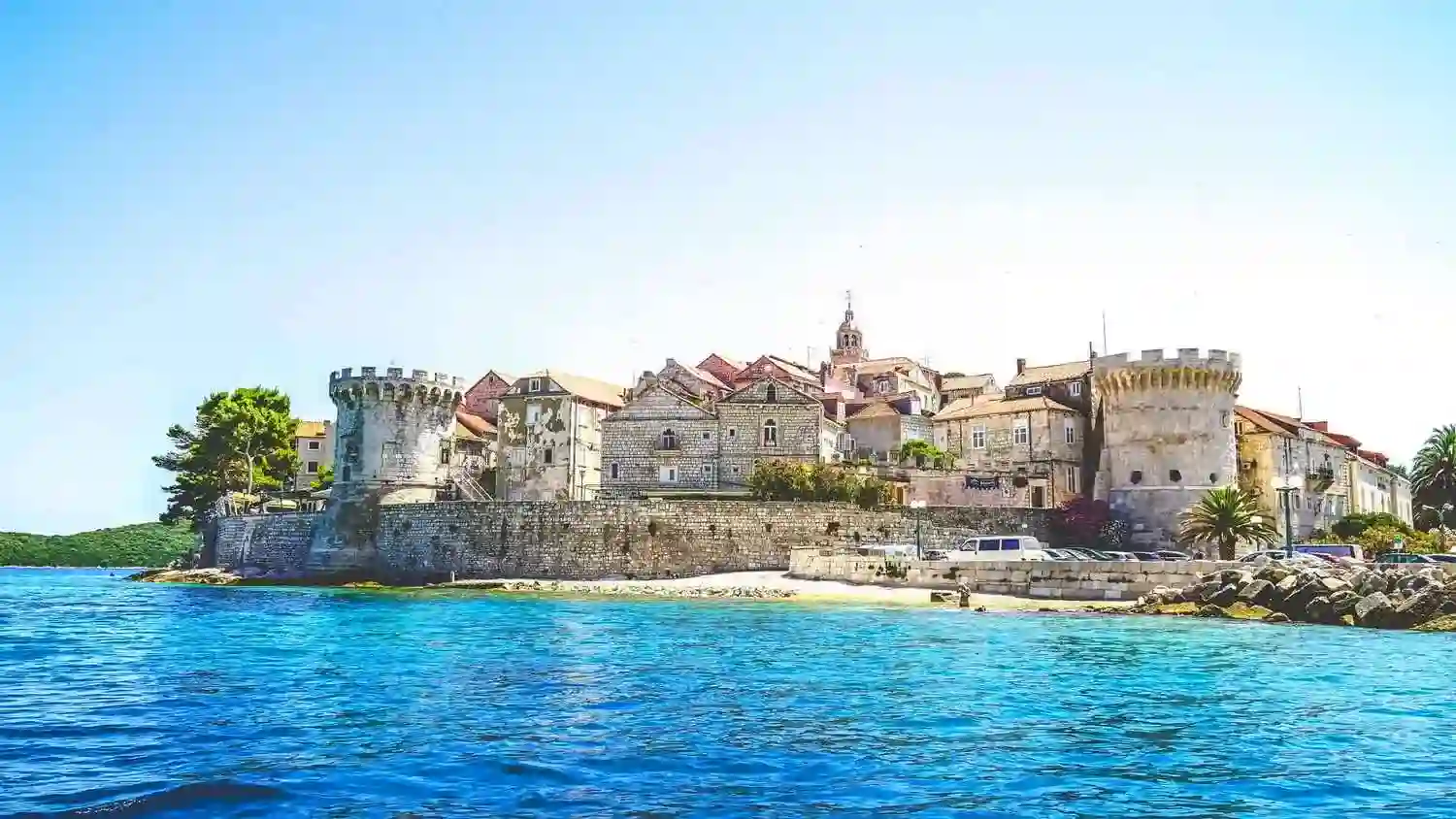
Whilst in Croatia, a lot of our time was spent exploring and making sure we ticked everything off. We wanted to spend time on an island and decided to go to Korčula which is off the Dalmatian coast, 2 hours or so from Split by catamaran ferry. Staying at an all-inclusive hotel here was more of a sunbathing holiday, and less sightseeing.
However, Korčula’s town is worth a visit, it’s often referred to as a mini Dubrovnik – similar walled city but on a smaller scale and less tourists. The island itself is magical, imagine tiny stone villages surrounded by olive groves and vineyards, pine woods, sandy coves and pretty pebble beaches.
Rovinj
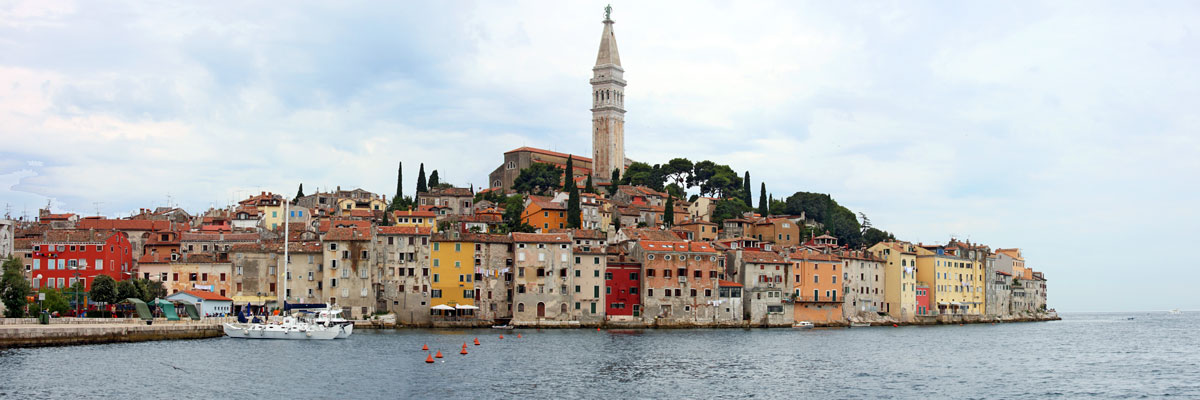
Hopefully the place we get married! Rovinj is a little fishing port with pastel buildings, cobbled streets and surrounded by the sea on the western side of the Istrian Peninsula. Spend time in Valentino Champagne and Cocktail Bar, try ice cream from one of the cafes or get a boat to one of the islands for a sun soaked and sea dip-filled day.
Rovinj is only 2-3 hours by ferry to Venice so you could even factor this into your holiday plans!
This romantic town once belonged to the Venetian and Roman Empires, so the history goes back a long way. In the heart of Rovinj is the Church of St. Euphemia, built in the 1700s. The bell tower is topped with a golden statue, resembling the one beside Venice Cathedral in Italy. You can climb the tower to see some stunning views of Rovinj.
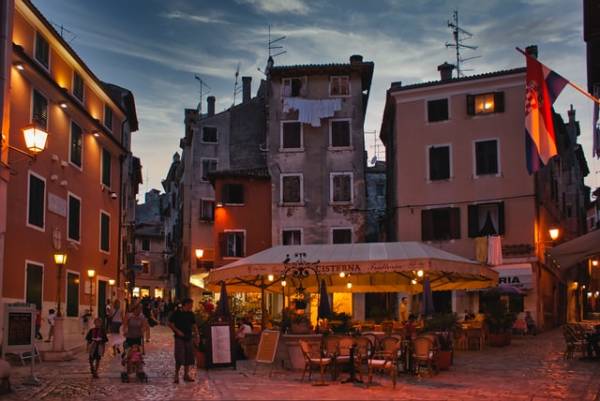
A theme of all the places I recommend is always about the food! Croatia, and Rovinj in particular, do seafood, pasta and ice cream exceptionally well! In fact, Istria is classed as Croatia’s ultimate foodie destination, so if you’re like me and love food, you’ll adore it here. From family-run eateries to upmarket restaurants, there’s something for everyone.
Whilst there, we dined at Monte, Croatia’s only Michelin star restaurant, to celebrate our engagement (lockdown at home in England stopped any celebrations). An 8 course taster menu is served with the option to pair each course with the perfect wine. We actually drank the same wine that Harry and Meghan had at their royal wedding in Windsor!
Croatia has a special place in my heart and I love all the different things it can offer. Writing this has made me want to book my plane ticket immediately to spend the day in the sun by sea! Will Croatia be on your list of places to visit once we are able to?
Getting around Croatia
Croatia is really easy to get around, it’s surprising how smoothly travelling went especially as we did most of the journeys on bus! The experience was totally positive, the buses were really affordable, on time, all air-conditioned, not overly busy and usually went the scenic route. I’ll never forget driving down into Dubrovnik and seeing the Old Town from above.
Ferries are good for hopping over to Croatia’s Adriatic Islands, tickets are only a few Euros and they run frequently in the summer.
A road trip is another option to explore the mainland, it’s simple to hire a car to get around Croatia or even to tour in a camper van. The Adriatic Highway ‘D8’ is one of the most beautiful routes to travel Croatia, from the Slovenian border to Montenegro passing Rijeka, Zadar, Split, and Dubrovnik on the way. Toll road motorways connect Zagreb to Pula, Rijeka, Zadar and Split, and to Istria, and a new motorway now runs southwards from Dubrovnik as far as Ploce.
Weather in Croatia
We visited Croatia for the month of June and the weather is hot in all of the places mentioned. The evenings are a lot cooler but most of the time you won’t need a jacket. At night, there were a couple of sudden downpours. In cities such as Split, the heat can feel a bit more intense but overall I enjoyed the weather and embraced dips in the sea to cool down.
Useful Travel Info on Croatia
Where is Croatia
Continent: Europe
The Republic of Croatia is a country in Southeast Europe. Located on the Balkan Peninsula beside the Adriatic Sea, Croatia borders Slovenia, Bosnia and Herzegovina, Montenegro, Serbia, and Hungary.
There are 9 International Airports in Croatia
- Zagreb (ZAG) is Croatia’s main airport
- Split (SPU)
- Dubrovnik (DBV)
- Zadar (ZAD)
- Pula (PUY)
- Rijeka (RJK)
- Osijek (OSI)
- Brač (BWK)
- Mali Lošinj (LSZ)
Currency & Language
Official Language: Croatian
Legal Currency: Croatian Kuna
Withdraw Kuna from ATMs in Croatia or exchange foreign currency at banks, airport kiosks, hotels or exchange bureaux.
Best Time of Year to Visit Croatia
If you’re planning a visit to Croatia, May and June or September and October are the best times of year; July and August are the hottest months, it’s peak season with lots of tourists around and consequently more expensive; from November through February the weather is colder, fine to visit the cities or for hikes in the national parks but coastal resorts will be quiet; March and April, around Easter time is a bit variable, some days will be sunny but the sea will still feel a bit chilly.
Related Posts on Beautiful Places To Visit In Europe
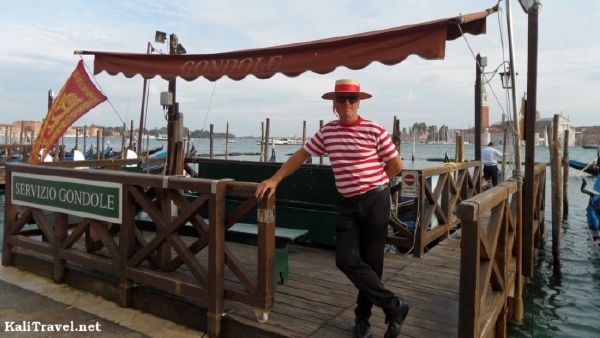
Venice is one of the most romatic places to visit in Italy, a unique and thrilling experience! A 2 day Venice itinerary is totally affordable and the whole trip really easy to organize if you follow our sensible travel tips. Stay in the heart of old Venice city, discover the iconic sites and then wander along the maze of canals away from the tourist scene.
Venice Lagoon Islands: Visit Torcello, Murano & Burano
How to Visit Venice Lagoon, Italy. Doesn’t the ‘Islands of the Venetian Lagoon’ sound romantic? Murano, Burano and Torcello are beautiful little islands a short distance off the coast of the world’s most famous water city – Venice!
Spanish Canary Islands Guide And Travel Advice
Our travel guide with everything you need to know about Spain’s romantic Canary Islands.
The latest health advice, what to see and do, best beaches and nature activities, how to get there and inter-island transport…
Alicante Travel Guide to Costa Blanca in Spain
The Costa Blanca is a famous stretch of coast in southeastern Spain, where a warm Mediterranean Sea bathes an infinite diversity of white sand beaches and pebble bays encircled by distant mountain peaks. Follow me on a journey down the coastline, an insider’s Alicante travel guide to the Costa Blanca in Spain.
10 Mediterranean Heritage Sites to Visit
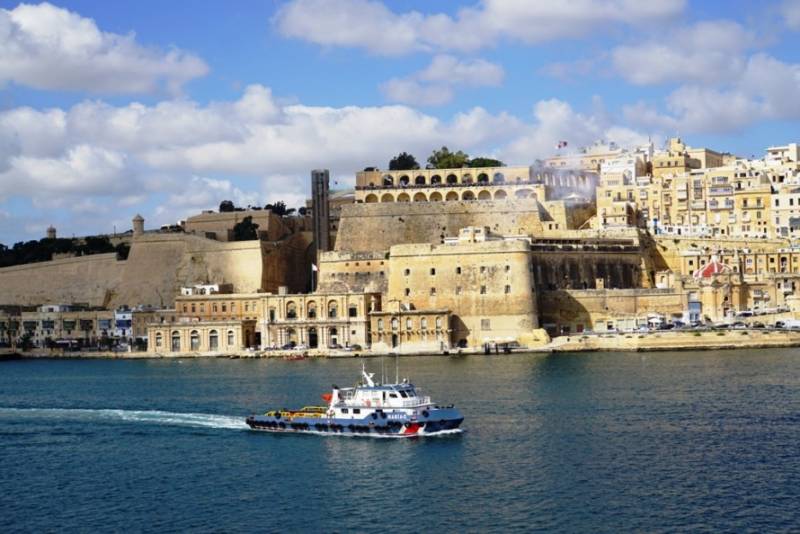
The list of top UNESCO sites in the Mediterranean countries is extraordinary! Here is our pick of legendary wonders, 10 Mediterranean Heritage Sites to visit.
Best Women-Only Tour Destinations
The best women-only tours in the world. See what to do and how to tour these top destinations for female travelers: Spain, Italy, Croatia, Sudan, Tanzania, and Iceland.
Discover the World with![]() the blog with a focus on independent travel
the blog with a focus on independent travel




